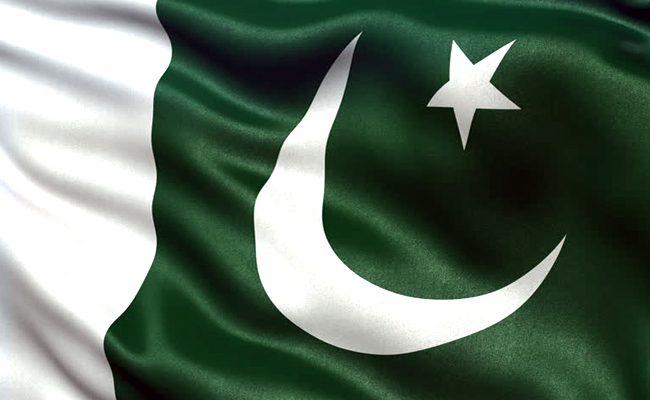Written: Sawaira Saeed
Kashmir Day, also known as Solidarity Day with Kashmiris, is held annually on February 5th, and is a significant event in Pakistan’s geopolitical calendar. It aims to raise awareness of the Kashmiris’ ongoing struggle for self-determination and freedom in Indian-administered Kashmir, as well as to recognize their sacrifices. The event’s history dates back to a demonstration by Kashmiris in the 1990s when Indian soldiers brutally killed 91 innocent Kashmiris to quell their peaceful protest. The then-Pakistani and Kashmiri governments decided to dedicate a day on the Pakistani calendar to Kashmiris.
Seminars, processions, demonstrations, the making of hand chains symbolizing the unbreakable relationship between Pakistan and Kashmir, and other events throughout the country or wherever Pakistanis live around the world are held to enlighten the people and the world about Indian atrocities committed over the last seven decades. In Pakistan, special prayers are held for its liberation, and all officials, from the top to the lowest, debate and support the Kashmir cause in many different capacities while considering how they might resolve it. Political leaders, religious instructors, and civil society activists deliver speeches emphasizing the misery of the Kashmiri people and calling for an end to India’s occupation of Kashmir.
The significance of the day in Pakistani history is emphasized on increasing awareness of one of South Asia’s protracted conflict, the one between India and Pakistan over Kashmir. Since the Kashmir case has been brought to all levels, whether international, multilateral, or bilateral; Pakistan has consistently emphasized Kashmir’s self-determination and raised awareness about India’s illegal occupation and treatment of it as a domestic/internal affair. However, it is an international issue with UN resolutions. The event seeks to raise awareness about human rights atrocities committed by Indian security personnel in the region.
This year, the significance of Kashmir Day and the 5th of February has been quadrupled since three days later, Pakistan will have its general elections, and it is now up to civil society organizations to wait and see which political party will support or genuinely resolve the Kashmir issue. The new administration that emerges from these elections will be accountable to the Pakistani people and expected to work to address their problems while upholding the Constitution’s ideals. This includes protecting human rights, promoting social justice, fostering national unity, strengthening democratic institutions, and ensuring effective governance not only in Pakistan but also in Azad Jammu and Kashmir. Since the party in power in Pakistan has a significant impact on the creation of a new government in AJ & K. The respect to the constitution is critical in this issue because it emphasizes the necessity of regional autonomy in correcting regional imbalances. As Pakistan commemorates Kashmir Day during the general elections, it serves as a powerful reminder of the country’s unwavering dedication to peaceful conflict resolution and upholding the rights of Kashmiris to self-determination. The newly elected government must make it a top priority to seek a peaceful resolution to the Kashmir conflict while staying true to the principles outlined in the Constitution. By doing so, we can strengthen our democratic system based on the tenets of the Constitution while also addressing issues and promoting national unity.
Beyond a mere symbolic gesture, marking of Kashmir Day is an attempt to draw attention of the international community towards the ongoing conflict in the region and its ramifications for peace-building efforts on conflict resolution under UN resolutions vis-à-vis demands by Kashmiri people. It is also a day when Pakistanis express solidarity with their brothers and sisters from Indian occupied Jammu and Kashmir with particular emphasis on the plight of Indian army brutalities upon them besides holding them captive for so long. In addition, it brings out awareness of human rights abuses committed by Indian police force during last 70 years, which include extrajudicial killings or rape against women in places, where lives both young ones including old ones are at stake. The day reflects on as a reminder to international community regarding continuous violence in this region calling for urgency need of peace in the region
Pakistani citizens should vote for candidates who are sincerely committed to resolving the Kashmir issue and who recognize the plight and sacrifices of their Kashmiri brothers and sisters. Kashmiri blood is not so low that it should go unchecked. They deserve peace and development in the region, hence all sides of Kashmir, whether Indian or Pakistani, must exercise caution while choosing and bringing leaders to power. Whoever takes power after the Pakistani general elections will face a series of challenges, ranging from an economic downturn to a security crisis, from hostile to friendly cum unfriendly neighbors, growing inflation, and unpredictable politics. The person who comes will be responsible for protecting Pakistan’s interests on all diplomatic fronts, from the Kashmir issue to countries conspiring against it, bringing stability to the country and putting an end to revenge politics, and focusing on Pakistan’s interests and the welfare of its people.
The writer is a student of Peace and Conflict Studies at National Defense University, Islamabad and is currently serving as an intern at Kashmir Institute of International Relations.
